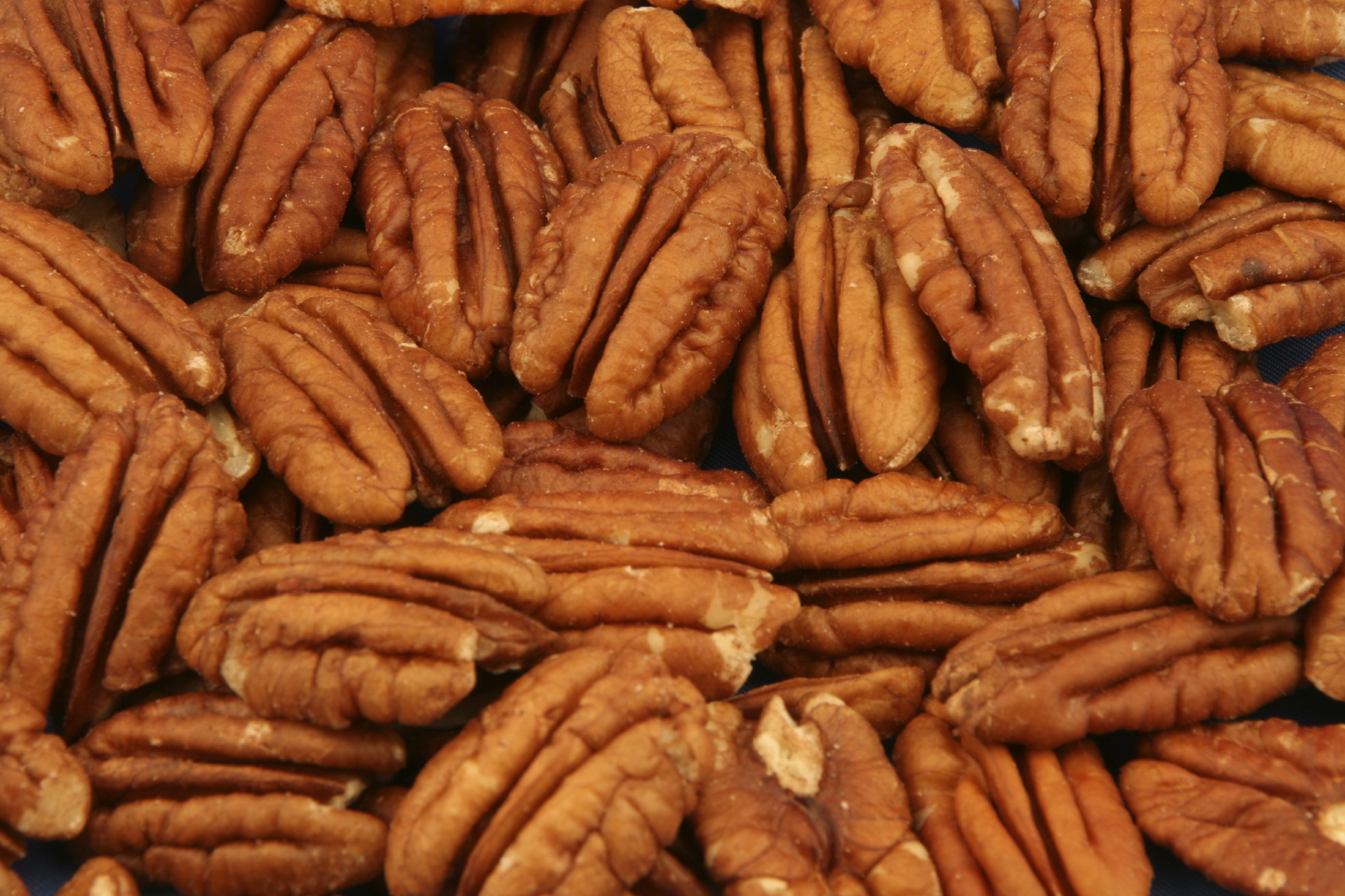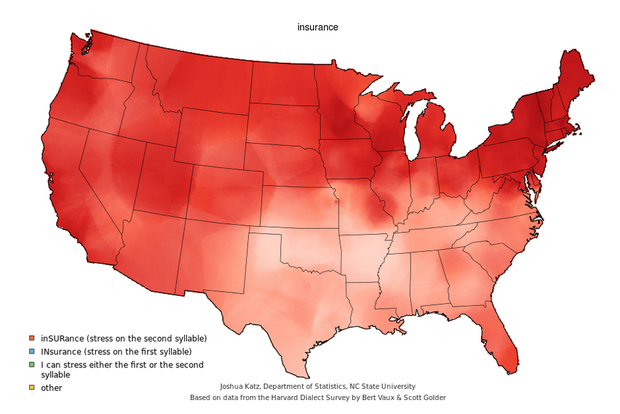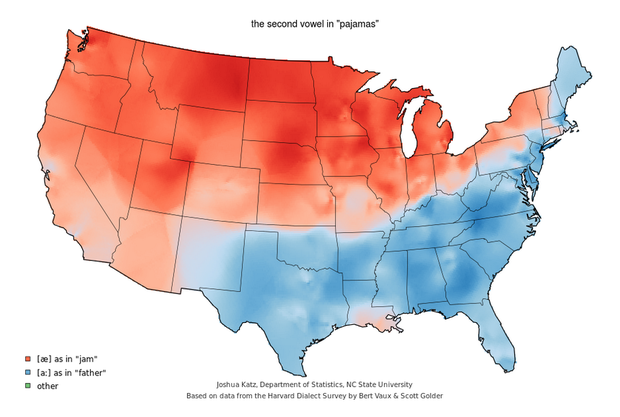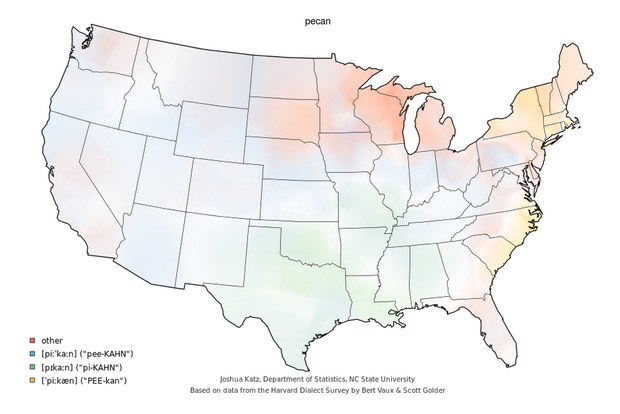How do you say 'pecan'?
You can trace the debate back to 1066


A free daily email with the biggest news stories of the day – and the best features from TheWeek.com
You are now subscribed
Your newsletter sign-up was successful
April is national pecan month, and while it's easy to celebrate by cooking up some pecan treats, it's a little hard to talk about it. Is it pih-KAHN or PEE-kan? Or maybe puh-KAN? There may be as many ways to say it as there are pecans in a pie. What makes this word so hard to pin down?
The main thing people disagree on is which syllable to stress. The pe-KAHN vs. PE-kan difficulty can be traced back to a problem that's plagued English for a long time. English at its historical core is an old Germanic language that always puts stress on the first syllable in a two-syllable noun. The oldest English words, the ones that have been part of the language since before the Romance-language speaking continentals arrived on English shores, follow this pattern: mother, father, water, meadow, iron, apple, liver, marrow. (Words formed with prefixes like besmirch, forbear, and afoot did not follow the same pattern.) It is still the case that a high percentage of English words have first syllable stress.
But starting with the Norman invasion of 1066, English took on a giant wave of French influence, and French has second-syllable stress. Many of the earliest borrowings adjusted to the English stress pattern (montagne—mountain, jardin—garden, forêt—forest, cité—city, monnaie—money), but later borrowings often didn't adjust (advice, machine, homage, divorce, balloon, giraffe, chagrin) especially when they had to do with high-style living (façade, soufflé, chiffon, couture, buffet, carafe, panache, chauffeur).
The Week
Escape your echo chamber. Get the facts behind the news, plus analysis from multiple perspectives.

Sign up for The Week's Free Newsletters
From our morning news briefing to a weekly Good News Newsletter, get the best of The Week delivered directly to your inbox.
From our morning news briefing to a weekly Good News Newsletter, get the best of The Week delivered directly to your inbox.
This leads to a tension between the borrowed stress pattern and the native pattern that occasionally breaks through in dialect differences. The British, for example, say GAR-age, and VAC-cine, and, BAL-let. In some parts of the United States people say JU-ly, and PO-lice, and CI-gar, and GUI-tar, and CE-ment.
So where do pecans fit in? Pecans are native to the U.S., and their name ultimately goes back to an Algonquian root, pakan, but we got the name through the French explorers who called it pacane, stress on the second syllable. It's been switching back and forth ever since. For what it's worth, cashew does the same thing. As food items go, both are slightly exotic, and the second-syllable stress preserves a bit of their mystery.
As for the vowel issues, they follow from the stress confusion. Vowels can take on different forms depending on syllable stress, and when combined with the general regional variation in vowels all kinds of combinations become possible. The interesting thing about pecan is that you'd expect it to be PE-kan in the south, and pe-KAHN in the north based on the distribution of IN-surance vs in-SUR-ance or the second vowel of pajamas, as shown in these maps from Joshua Katz (based on Bert Vaux's Harvard Dialect Study).


But this is the pecan map:
A free daily email with the biggest news stories of the day – and the best features from TheWeek.com

It's not a North-South split, but rather looks to have something to do with the Appalachian Mountains. Even so, there's a lot of variation within the map regions. Kathleen Purvis, who wrote a book on pecans, tells the story of how her parents had a pecan "mixed marriage."
He was from Americus, a small town in South Georgia, and she was from the mighty city of Atlanta.All of my childhood, I couldn't say the word without being corrected: If I said "pah-cahn," my father would accuse me of talking snobby. And if I said "pee-can," my mother would sniff, "Pee-can? That's something you put under the bed."
She attributes the pecan split not to a general regional difference, but to an urban vs. rural one. Basically, "if you want to sound down-home or a little bit country, say 'pee-can.' If you want to sound a little more urbane, say 'pah-cahn.'"
Arika Okrent is editor-at-large at TheWeek.com and a frequent contributor to Mental Floss. She is the author of In the Land of Invented Languages, a history of the attempt to build a better language. She holds a doctorate in linguistics and a first-level certification in Klingon. Follow her on Twitter.
-
 Political cartoons for February 13
Political cartoons for February 13Cartoons Friday's political cartoons include rank hypocrisy, name-dropping Trump, and EPA repeals
-
 Palantir's growing influence in the British state
Palantir's growing influence in the British stateThe Explainer Despite winning a £240m MoD contract, the tech company’s links to Peter Mandelson and the UK’s over-reliance on US tech have caused widespread concern
-
 Quiz of The Week: 7 – 13 February
Quiz of The Week: 7 – 13 FebruaryQuiz Have you been paying attention to The Week’s news?
